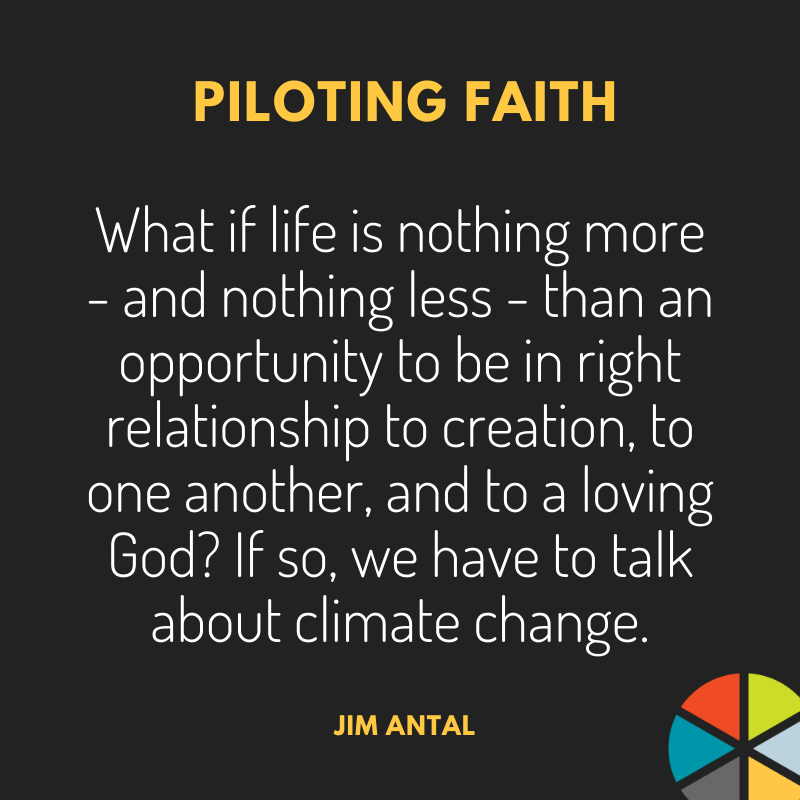Many years ago, a brave and prophetic colleague/friend named Jim Antal began sounding the alarm of climate change. Few other leaders in our circles were prioritizing climate change as the crisis of our time. We were locked in global wars, struggling with inequality, challenged by mass immigration, and fighting terrorism across the world. But Jim knew that all of those were irrelevant in the face of a larger brewing crisis. I remember him saying to me, “Cameron, if faith leaders don’t start speaking about the damage we are causing our planet, then we will reach a point when all we will ever talk about is grief.”
I thought I understood what he was saying. I realize now that I had no idea.
Yesterday the U.N. climate panel released its most comprehensive assessment of climate change yet. Calling the report “Code Red for Humanity,” researchers and scientists are clear: we are in trouble. They wrote, “Many changes due to past and future greenhouse gas emissions are irreversible for centuries to millennia, especially changes in the ocean, ice sheets and global sea level.” While we must stay on course to lower our CO2 levels and other pollutants, we must also acknowledge that we have passed a point of no return. We have fundamentally changed the quality of life for every living creature on earth.
Here are the highlights:
- Humans are to blame for the warming of the planet. No debate.
- Temperatures are going to continue to rise.
- The weather is becoming more extreme.
- The icecaps are disappearing. Arctic summers could be free of snow.
- Seas are rising, and nothing we do will stop them.
They then highlight several possible futures for the world, none of which are preferable to the one we wish for our grandchildren. After reading the report’s summary (the actual report is over 3,000 pages long), I went outside to sit by the trees at the shoreline of our lake. It was a beautiful day. The fish were jumping. The breeze was cool on my face. The ducks swam over to offer their greeting.
“I’m so sorry,” I whispered to all of them. “I’m so heartbreakingly sorry for the harm we have caused you.” Then I remembered Jim’s words. Grief. We will speak of unimaginable grief.
In his book Climate Church, Climate World, Antal writes, “Only by fully grieving all that we have lost can we fully enter into the new tomorrow that God is preparing. We have so much to mourn: personal grief over loved ones lost and homes destroyed; ubiquitous grief over the long emergency that has straight-jacketed our lives; and anticipatory grief over the catastrophe that we are handing over to our children….We need to acknowledge our grief over the ongoing ruination of Creation. Only by doing so can we be receptive to a message of hope.” He goes on: “Hope is the most important contribution people of faith can and must make as humanity confronts the climate crisis. To become people of hope we must be willing to stare reality in the face.”
So, we sit with grief in these days. We also act with hope. The story of faith is one of life, death and life again. Hope, despair, hope again. But that hope is born of leadership and action. We must all do what we can to protect our little corners of the world. Perhaps with enough of us loving the planet back to health, we can literally save the world.
We are in this together,
Cameron
